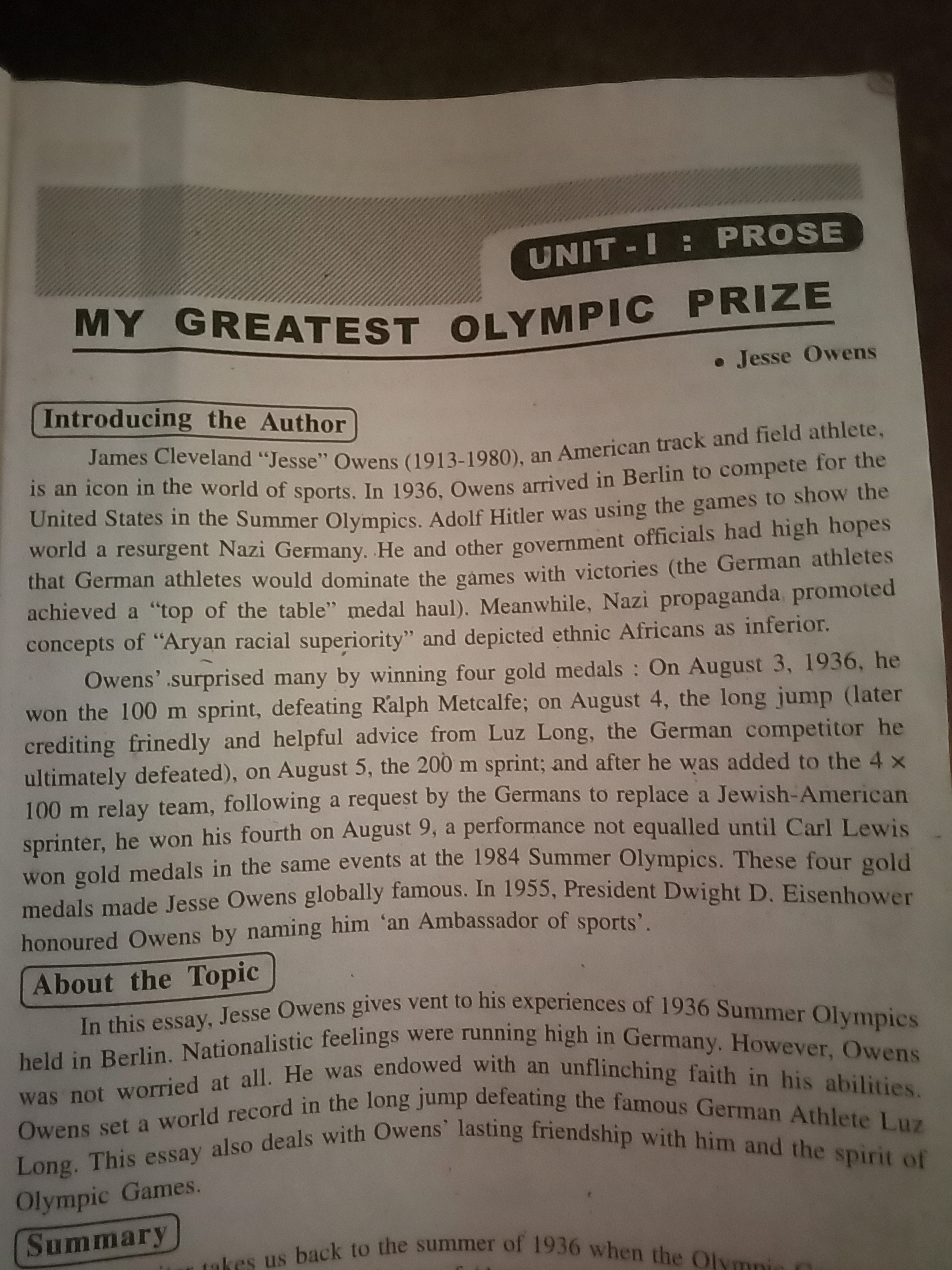What are the main themes and historical context presented in Jesse Owens' experience during the 1936 Summer Olympics?

Understand the Problem
The text introduces Jesse Owens and discusses his experiences during the 1936 Summer Olympics in Berlin, highlighting his achievements and the political context of the event. It provides historical background and emphasizes themes of racial superiority and friendship, particularly with Luz Long.
Answer
Racism, nationalism, and sportsmanship; Owens challenged Nazi propaganda.
The main themes in Jesse Owens' experience during the 1936 Summer Olympics include racism, nationalism, and sportsmanship. The historical context involves Nazi Germany's use of the event to promote Aryan superiority, which Owens challenged by winning four gold medals.
Answer for screen readers
The main themes in Jesse Owens' experience during the 1936 Summer Olympics include racism, nationalism, and sportsmanship. The historical context involves Nazi Germany's use of the event to promote Aryan superiority, which Owens challenged by winning four gold medals.
More Information
Jesse Owens' victory was symbolic, not just against the competition, but against the Nazi ideology. Despite challenging racial prejudice abroad, he also faced segregation and racism back in the U.S.
Sources
- Berlin 1936 Olympic Games | History, Significance, Jesse Owens - britannica.com
- How Jesse Owens Foiled Hitler's Plans for the 1936 Olympics - history.com
- The Nazi Olympics Berlin 1936: African American Voices and "Jim Crow" America - encyclopedia.ushmm.org
AI-generated content may contain errors. Please verify critical information